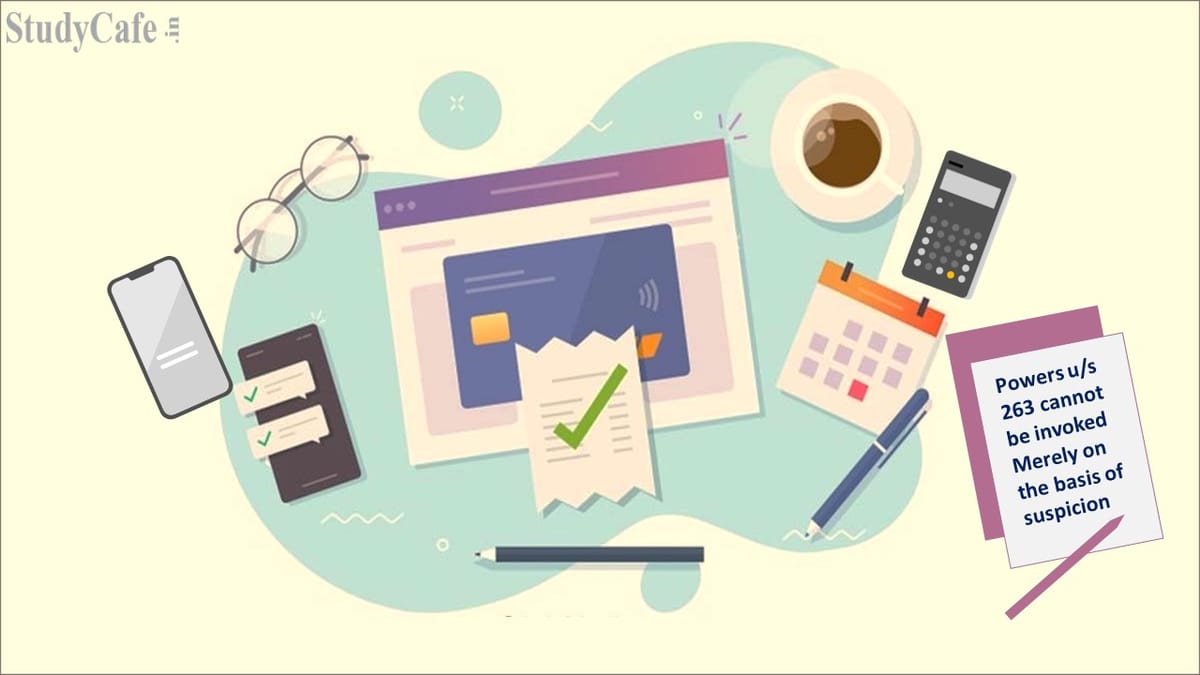Powers u/s 263 cannot be invoked Merely on the basis of suspicion: ITAT
Deepak Gupta | May 20, 2022 |

Powers u/s 263 cannot be invoked merely on the basis of suspicion: ITAT
The Income Tax Appellate Tribunal has held that merely on the basis of suspicion, invoking of powers u/s 263 would not be justified.
In the present case, in the opinion of learned Pr. CIT, the assessment order was passed without making requisite inquiries/ verification which should have been made. As per learned Pr.CIT, Assessing Officer failed to make necessary inquiry. It is also recorded that the assessee has simply submitted verbal narration without furnishing any documentary evidence. Hence, it was held that the assessment order dated 31.05.2017 passed u/s 143(3) was erroneous and also prejudicial to the interest of revenue.
However, looking to the material placed on record we find that the Assessing Officer issued a questionnaire along with notice u/s 142(1) dated 19.12.2016. In response thereto, the assessee had filed his reply regarding the queries raised by the Assessing Officer. It is also transpired from record that notices u/s 133(6) of the Act were issued. Thereafter, he framed the assessment. We find that the assessee in response to notice u/s 263, had duly explained the transaction related to M/s Maa Kalika Foundaries Pvt. Ltd., introduction fresh capital and also description “CAS CHQ XFER WD”.
Looking to the material placed before us, the Pr.CIT has not made out a case of any prejudice caused to the Revenue. The law is well settled that for exercising power u/s 263 twin conditions are required to be satisfied – (i) that the order should be erroneous and; and (ii) it should cause prejudice to the interests of Revenue. Moreover, it is not the case where the assessee failed to substantiate his claim, rather the explanation along with supporting evidences were placed before the assessing officer and the learned Pr.CIT. In our considered view merely on the basis of suspicion, invoking of powers u/s 263 would not be justified.
The concluded assessment should be revised where there is blatant error committed by the assessing officer, which culminated into the prejudice to the interest of Revenue. But where the Assessing Officer made necessary inquiry and satisfied itself about the explanation offered to him, revising such an order is highly unjustified and contrary to the ratio laid down by the Hon’ble Supreme Court in the case of M/s Malabar Industrial Co. Ltd. Vs. CIT (2000) 243 ITR 83. Therefore, in the present case the action of the learned Pr.CIT is unjustified and the same is hereby set aside and the assessment is restored.
In case of any Doubt regarding Membership you can mail us at [email protected]
Join Studycafe's WhatsApp Group or Telegram Channel for Latest Updates on Government Job, Sarkari Naukri, Private Jobs, Income Tax, GST, Companies Act, Judgements and CA, CS, ICWA, and MUCH MORE!"